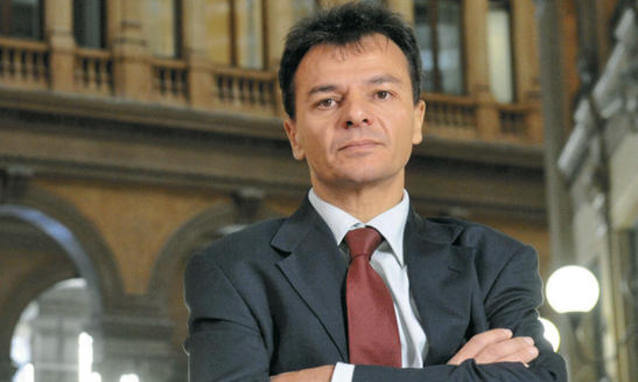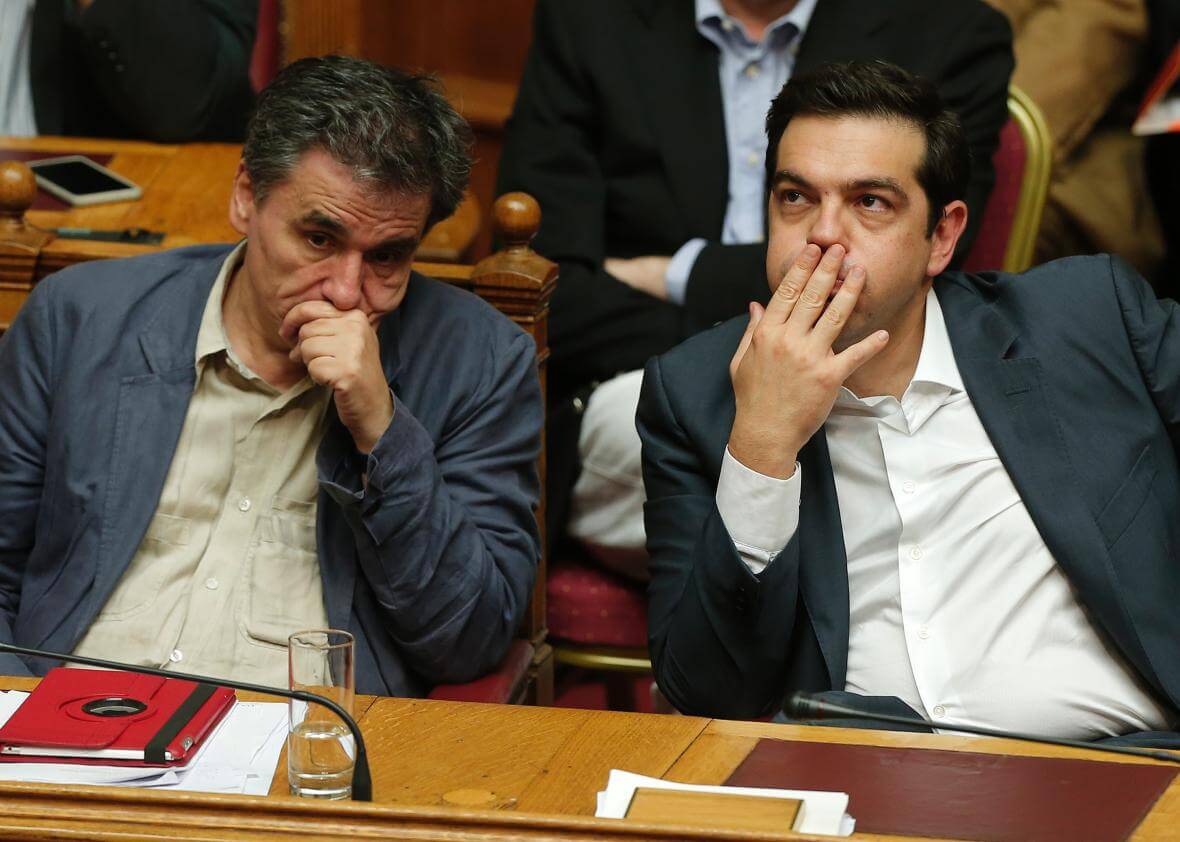Financing vs. Spending Unions: How to Remedy the Euro Zone’s Original Sin
By Thomas Palley
In economic policy, timing isn’t everything, it’s the only thing. The euro zone crisis has been evolving for over seven years, making it difficult to time policy proposals. Now, the shock of Brexit has created a definitive political opportunity for reforming rather than patching the euro. With that in mind, I would like to revive an earlier mistimed proposal for a euro zone “financing union” (English version, German version). The proposal contrasts with others that emphasize “spending unions”. But first some preliminaries.
The Euro Zone’s Original Sin
The original sin within the euro zone is the separation of money from the state via the creation of the European Central Bank (ECB) which displaced national central banks. Under the euro, countries no longer have their own currency for which they can set their own exchange rate and interest rate, and nor can they call on a national central bank to buy government bonds and finance government spending.
The loss of an own exchange rate and interest rate diminishes the ability to conduct country-specific stabilization policy. More importantly, the loss of national central banks means national governments no longer have a government banker standing behind them, which reduces them to provincial status in terms of their dealings with financial markets.
That change has two major consequences. First, if a government finds itself under speculative attack in bond markets, it lacks a national central bank that can step in and buy government bonds to stabilize the market. Second, if a country experiences deep recession and loses credit-worthiness, it is unable to undertake large-scale deficit financed fiscal stimulus supported by central bank bond buying.
The Euro Zone’s Over-Lapping Three Stage Crisis
The euro zone’s crisis can be understood as an over-lapping three stage crisis that has collided with both of the above features.
The first stage was in 2009 immediately after the financial crisis of 2008. Countries bailed out their private banks which had engaged heavily in speculative property lending. Those bail-outs solved the private banking crisis at the expense of loading governments with massive debts.
The second stage involved speculative attacks against weak country government bonds – the so-called PIIGS economies (Portugal, Ireland, Italy, Greece, and Spain). Financial markets quickly sensed that bank bail-outs had rendered governments insolvent, threatening a break-up of the euro zone. Unable to defend their bonds because of lack of national central banks, PIIGS’ bond prices collapsed and interest rates spiked.
This second stage was contained by gradually more robust ECB interventions. These included long term refinancing operations (LTROs) of the private banking system and an asset purchase program (APP) that now covers government bonds, mortgage bonds, asset backed securities, and corporate bonds. In effect, the ECB belatedly stepped up to the traditional central bank role of defending national government bonds against speculative attack. The second stage was closed with Mario Draghi’s famous July 26, 2012 comment that “the ECB is ready to do whatever it takes to preserve the euro.”
By then, the third stage of the crisis was firmly underway. The 2008 financial crisis had launched a deep demand-shortage recession calling for massive fiscal stimulus. Some stimulus had initially been forthcoming, but it ended owing to the combination of a political turn to austerity and the PIIGS’ government debt crisis. The former promoted austerity in solvent euro zone countries (e.g. Germany). The latter froze insolvent countries out of the bond market, making it impossible for them to finance fiscal stimulus.
The euro zone remains mired in this third stage crisis, which increasingly resembles a metastasizing economic and political cancer. Trapped in stagnation, governments continue to run budget deficits that wrack up debt and worsen their financial predicament without being powerful enough to trigger recovery. Politically, stagnation feeds social alienation and the rise of the extreme right.
The Unresolved Problem Of Budget Deficit Financing
The problem is countries still lack a central bank willing to perform the second traditional function of financing budget deficits to deliver fiscal stimulus.
In principle, the ECB could do so by buying bonds of depressed countries wanting stimulus. However, that is rightly rejected by other euro countries which consider themselves not in need of stimulus. First, it would implicitly transfer resources to depressed countries at their expense.
Second, it would create a massive moral hazard problem as countries would have no incentive to practice fiscal discipline. Knowing the ECB was committed to financing their deficits, each country would have an incentive to binge spend, quickly creating a spiral of financial instability.
Spending Versus Financing Unions
The euro zone’s depressed state has prompted several proposals for fiscal stimulus that are feasible, despite the deficit finance constraints on individual countries. It is here that the distinction between spending and financing unions enters.
A spending union involves collective expenditure decisions and transfers of resources between countries. A financing union involves collective issuance of debt, the proceeds of which are then distributed among members on a per capita basis.
Almost uniformly, progressive stimulus proposals (see for example Varoufakis and Holland, 2010; Watt, 2015) have been in the mold of spending unions. A key feature is these proposals start with the goal of fiscal stimulus and then work back to finance it in a manner consistent with the Maastricht Treaty which founded the euro.
The essence of these particular proposals is the European Investment Bank (EIB) would issue debt that the European Central Bank (ECB) could purchase and the proceeds would be used to finance public investment. More utopian spending union proposals argue for a transfer union whereby richer and booming countries would transfer resources to poorer and depressed countries.
So far, these proposals have gained little traction for two reasons. First, there remains a political inclination toward austerity in financially strong euro zone countries, especially Germany. Second, and more importantly, spending unions transfer the power of the purse to European institutions, which is the opposite of what national electorates currently want.
A Financing Union Proposal
I have proposed an alternative financing union (Palley, 2011a, 2011b) that would establish a European Public Finance Authority (EPFA), a Finance Ministry. The Ministry would be governed by the finance ministers of euro zone countries, with country voting rights allocated on a per capita basis.
The Ministry would issue bonds jointly and severally backed by all member countries, which the ECB could buy. The Finance Ministry would engage in no spending. It would simply pay issue proceeds to member countries on a per capita basis, with countries liable for debt service on the same per capita basis.
Each year the Ministry would determine the appropriate budget deficit for the euro zone and issue bonds in that amount, the proceeds of which would be paid to members to use as they deemed fit. Those countries wanting fiscal stimulus could spend the proceeds; others could use the proceeds to buy EPFA bonds, thereby covering their obligation and leaving their net debt position unchanged.
Countries could also issue their own national bonds to finance additional stimulus over and above that financed by EPFA. These national bonds would constitute a form of junior debt that would trade at a discount to EPFA debt, reflecting country specific financial characteristics.
Additionally, at its creation, the Finance Ministry could engage in a onetime “refinancing” of existing national debt, which would be exchanged for EPFA debt. The debt exchange would again be on a per capita basis. Countries with little national debt would be issued EPFA debt to compensate for any joint liability incurred via the refinancing operation.
Lastly, an accompanying bankruptcy mechanism would be established. Country national debt would be subject to a junior bankruptcy mechanism similar to the Chapter 9 provision in US law for states and municipalities. EPFA debt would be subject to a senior sovereign bail-out mechanism that could permit conditionality arrangements. That would permit EPFA debt to trade as senior debt and national debt to trade as junior debt, reflecting country specific characteristics.
The Advantages Of A Financing Union
The financing union proposal has several significant advantages.
First, it permanently remedies the euro’s original sin, creating both a bond that can be bought without qualification by the ECB and a permanent policy mechanism for deficit financing. Money and the state are therefore reconnected.
Second, it avoids the great political pitfall of spending unions regarding usurping control of the purse from the state or imposing transfers between countries. Countries choose how much of EPFA debt proceeds they spend, and the rest they can use to offset their EPFA debt obligation.
Third, a financing union addresses all the Maastricht Treaty fears regarding moral hazard and lax country fiscal discipline. It does so by making deficit financing a collective decision and sharing the proceeds equitably.
Fourth, it establishes a bond market structure that creates an enforceable distinction between “senior” EPFA debt and “junior” national debt. Consequently, the bond market can perform an important pricing and disciplining function as countries pursuing fiscally unsustainable paths would face higher interest rates compared to EPFA debt and national debt of other countries.
Fifth, it provides a growing stock of debt via EPFA’s annual budget deficit financing operations which the ECB could purchase. That avoids problems such as the looming shortage of German Bunds which threatens to stop the ECB’s current quantitative easing program.
It also voids need for the ECB to buy corporate debt as a substitute because of the Bund shortage. Buying corporate bonds is an outright financial transfer to the large companies who issue bonds, and it is occurring at a time of record capital income share.
Lastly, if the euro zone’s politics evolve in favor of closer integration, a financing union could be easily converted into a fiscal union by giving the Finance Ministry tax and spending powers.











